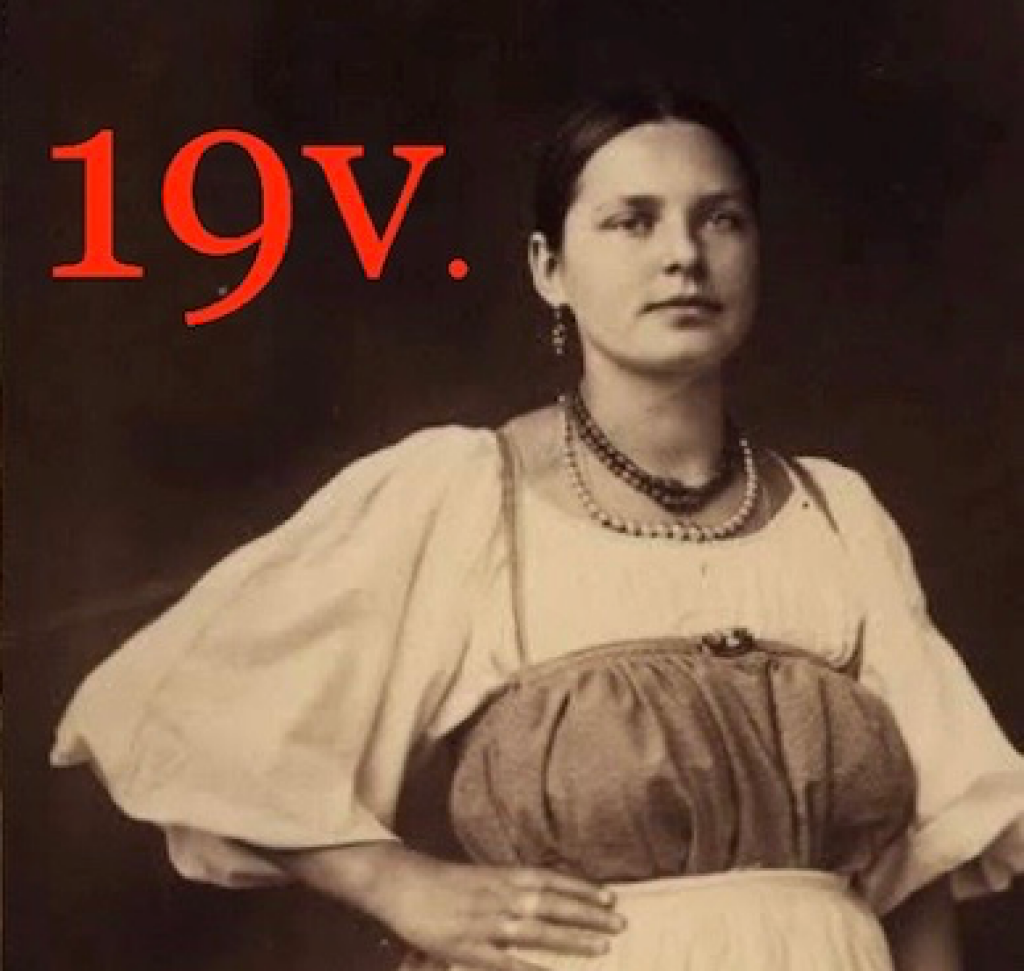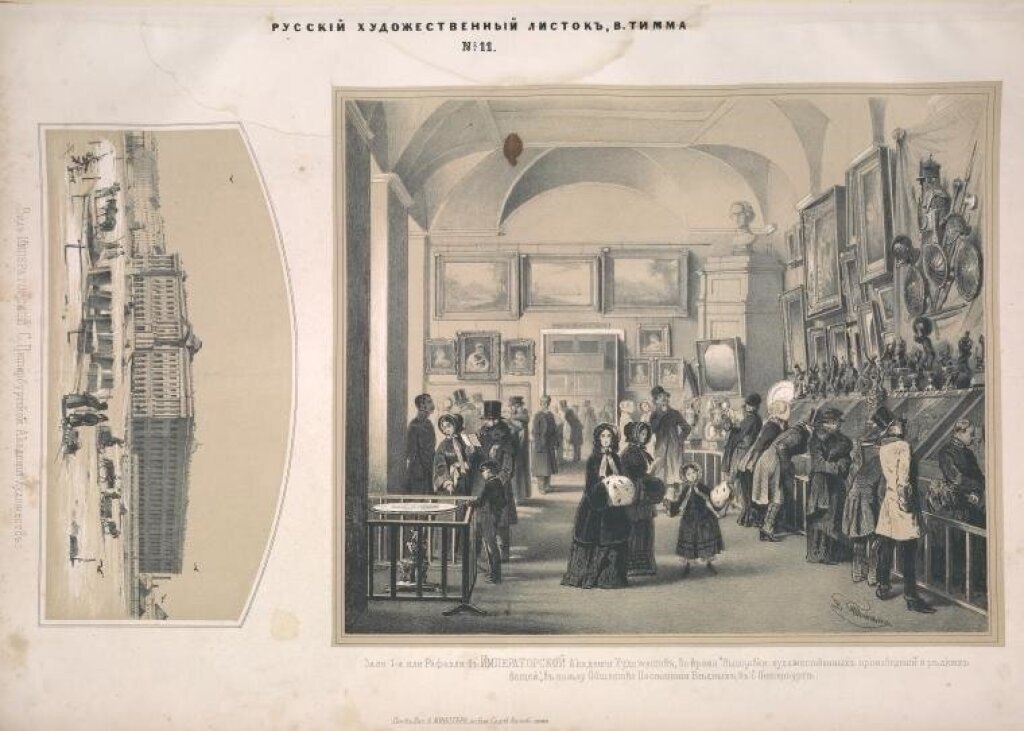Helen Stuhr-Rommereim is a PhD Candidate in Comparative Literature at the University of Pennsylvania.
At every meeting of “The Other 19v,” a reading group devoted to discussing less-studied nineteenth-century Russian writers, we find new insights into this century of literary experimentation and cultural transformation. One week, the entrancing ennui of Anna Korvin-Krukovskaya’s “Dream [Son]” (1864) opens up the deep melancholy of a young writer who would later befriend Karl Marx and participate in the Paris Commune—at a moment we often view as defined by Reform-era zeal and revolutionary optimism. Another week, we encounter Dmitri Begichev’s proto-novelistic, pulpy morality tale, “The Kholmsky Family [Semeistvo Kholmskikh]” (1832), which offers a view into the pre-history of the Russian novel.
We are able to read important women writers—Nadezhda Khvoshchinskaya, Avdotya Panaeva—outside of the frame of the “Woman Question,” to which their work is often confined. The openness of the reading-group format is part of what allows these conversations to be so fruitful. There is no need, in this context, to outline the stakes that would justify writing an article about, translating, or teaching the authors we discuss. This space for exploration makes clear how much there is to learn from those nineteenth-century writers that are rarely read, written about, or taught—most of whom have never been translated into English—as well as the challenges and barriers to expanding the circle of those writers we do write about and teach.
While nineteenth-century Russian literary studies, especially in English, has typically focused on six or seven of the many thousands of writers active in the period, the Other 19v reading group and the activities and talks organized by the 19v Working Group have made clear that there is currently enthusiasm for giving scholarly attention to a greater sampling of nineteenth-century Russian writers. This objective parallels and contributes to other developments in the field—the study of nineteenth-century literature in relation to the ideology of imperialism, for example, or in terms of the ways literature reflects on the emergence of a capitalist economic system. It also has the potential to open up more connections and points of dialogue with scholarship on other literatures, especially those of Western Europe.
Many recently published studies of nineteenth-century Russian literature include substantial engagement with lesser-known authors. Studying lesser-known writers also presents certain conceptual and practical challenges. I will offer one example from my own research that I think shows both what can be learned from digging deeper into the margins of the nineteenth-century literary field, and some of the challenges of doing this work.
The author Fedor Reshetnikov (1841-1871) does not fit the profile of the typical nineteenth-century Russian writer. He came from the Urals, and was the mostly self-educated, orphaned son of a postman. He established his career as a narrator of obscure corners of rural and urban life. Reshetnikov’s contemporaries ascribed to him a naïve view, which at once undermined his literary authority and served to articulate the importance of his work according to the concerns of the day: the author’s supposed naivety served to prove his work’s authenticity.
Reshetnikov did write from direct experience, although not in the entirely un-crafted way his contemporaries described. He embedded himself in various milieus—barge haulers, Ural factory workers—gathering stories and characters from life, and assembling them into narratives. But when he traveled to the Imperial periphery in the late 1860s, to Brest, where his wife was sent to work as a midwife, he struggled to write about his Polish and Jewish neighbors. His writing had previously been based on his own familiarity and comfort in the milieus about which he wrote. His sketches about Brest’s Jewish markets thus reveal a complex negotiation of Imperial identities. Reshetnikov does not possess, and does not adopt, the viewpoint of a central Imperial subject reporting on the periphery. In the Brest sketches and in other works, he establishes a distinct form of literary authority. Understanding the way Reshetnikov negotiated his particular writerly positionality, however, requires that we assume agency and intention on Reshetnikov’s part, rather than accepting his contemporaries’ characterizations of him as "naïve."
Reception histories that undermine the authorial agency of writers who occupied marginalized social positions are common. For example, Reshetnikov’s legacy shares something with that of Avdotya Panaeva: contemporaries would claim that both Panaeva’s and Reshetnikov’s works were heavily edited, even partially rewritten, by their common editor Nikolai Nekrasov. But much is to be gained from applying the literary scholar’s methods of close reading to those very texts that have been variously deemed not worth the time (on Panaeva, for example, see Margarita Vaysman’s forthcoming article in Russian Review).
One barrier to doing this sort of work is that while the oeuvres of Dostoevsky and Tolstoy are self-justifying objects of study in themselves, the study of other writers must always be justified externally—either in relation to a canonized writer, or a historical question. This is one reason why a space for reading without express purpose, like the reading group, is necessary. Indeed, the current renewed interest in less-studied writers may in some ways have been facilitated by the pandemic: it drove new forms of online collaboration and, at least for a time, interrupted our plans and cleared our schedules.
Furthermore, graduate students planning their dissertation research may simply not be aware of a great number of writers and texts, and certain works can be difficult to access. A project like an English-language database of writers’ biographies with lists and brief descriptions of works could help graduate students quickly survey texts they may not yet know of that would be relevant to their research topics. As scholars gather electronic versions of texts, these resources can be shared—and as more research is published, new texts may appear on electronic Russian library sites like az.lib.ru.
Incorporating a wider array of texts into courses on Russian literature for undergraduates presents even more challenges, the limited number of works available in translation first of all. But just as studying more writers is an important part of addressing the questions driving current research, a diversified view of nineteenth-century Russian literature allows for a wider array of specialized seminars to attract undergraduates, without displacing the works that form the core of the nineteenth-century curriculum.
Columbia University’s Russian Library series has already begun to substantially expand the options we have to choose from in planning our nineteenth-century literature courses. Karolina Pavlova’s Double Life (Barbara Heldt’s translation was reissued by Columbia in 2019), for example, is becoming a staple in Russian novel survey courses. Korvin-Krukovskaya’s “Dream,” were it to be translated, would be an illuminating text to teach in the context of the classic polemic between Dostoevsky’s Notes from Underground and “Vera Pavlovna’s Fourth Dream,” from Chernyshevsky’s What Is to Be Done?. There are many other examples like this.
I write this with the sense that there is currently great interest in new translations, new approaches to teaching the nineteenth-century tradition, and scholarship that addresses a wider array of writers—and with great respect and appreciation for those who have already been working beyond the confines of the canon for decades. I hope others will continue to share this enthusiasm, and I encourage all who are interested to join the Other 19v reading group, or to volunteer to present to the group on a writer.
Additionally, Vadim Shneyder and I are currently working on a special issue of Russian Literature on the “unknown nineteenth century,” focused on less-studied writers. We are collecting abstract submissions for the issue until March 15; please write to us if you are interested in contributing.



